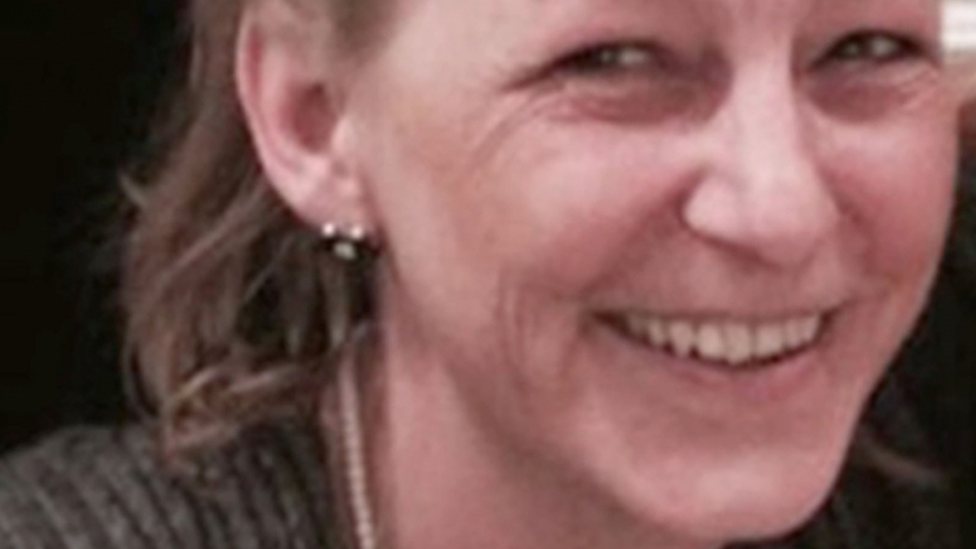Dawn Sturgess: Lawyers accuse Priti Patel of delaying possible inquiry
- Published
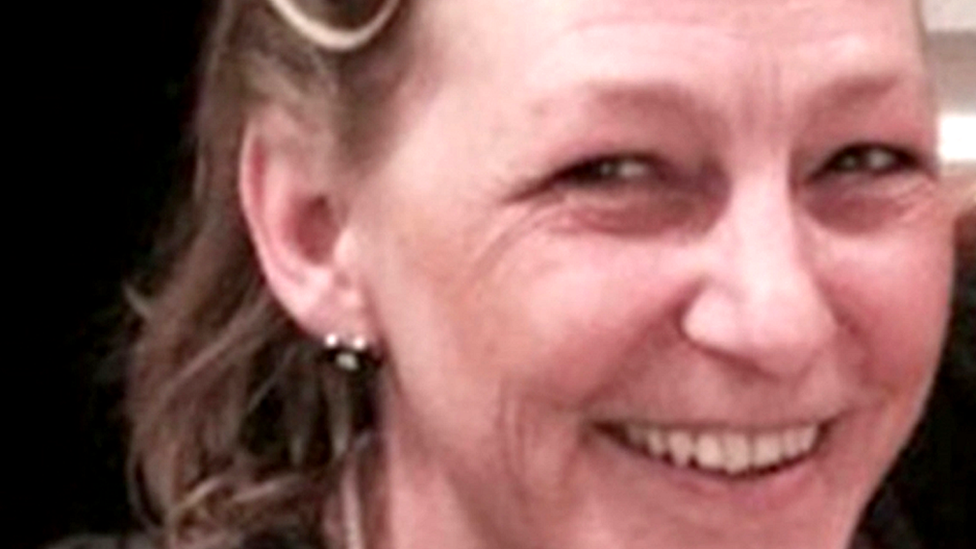
Dawn Sturgess was not the target of the Novichok poisonings but encountered the nerve agent by accident
Lawyers at the inquest into the death of Dawn Sturgess in the 2018 Novichok poisonings have accused Home Secretary Priti Patel of delaying a possible public inquiry.
Ms Sturgess, 44, died after rubbing the nerve agent into her skin.
Coroner Baroness Hallett believes intelligence about Russian involvement is "too sensitive" for the inquest.
She has asked the Home Secretary to give an indication she will hold an inquiry, but Ms Patel has refused.
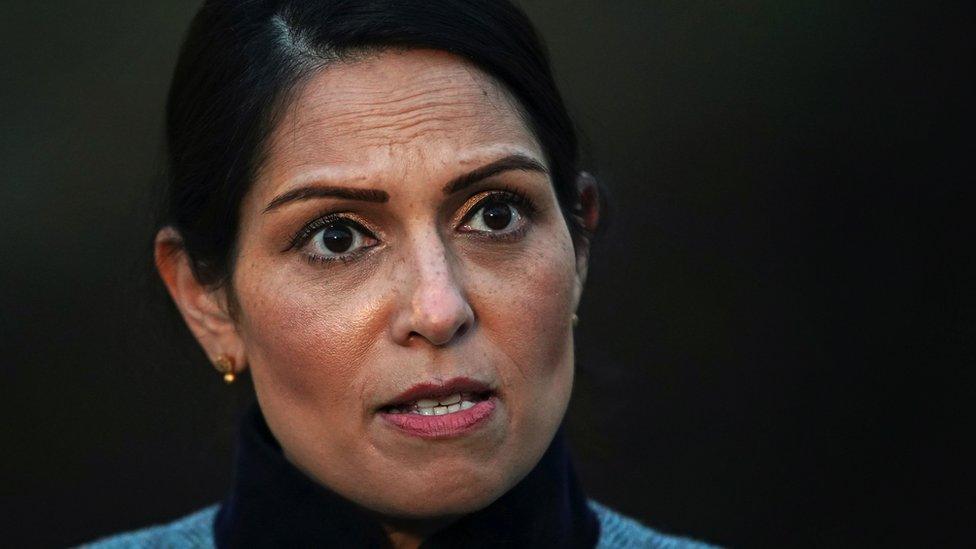
Priti Patel wrote to the coroner saying it would be inappropriate to say whether there would be a public inquiry at this stage
Inquest barrister Andrew O'Connor QC said it was a "matter of regret" that Ms Patel had not "engaged more constructively".
Cathryn McGahey, QC for the Home Secretary, said the process was not straightforward and Ms Patel would give a final decision by Christmas.
The inquest has reviewed reports and documents about Russian involvement and discovered "highly relevant issues" relating to the case.
Ms Sturgess, a mother-of-three, died in hospital on 8 July 2018. She had come into contact with a perfume bottle containing Novichok, found by her partner, Charlie Rowley.
Her death followed the attempted poisoning of former Russian double-agent Sergei Skripal and his daughter Yulia in Salisbury.
Ms Sturgess collapsed at Mr Rowley's home in Amesbury, eight miles from Salisbury, on 30 June. Mr Rowley, who also came into contact with the substance, was seriously ill but recovered.
A Metropolitan Police investigation has identified a three-man Russian hit team as responsible for the attack.
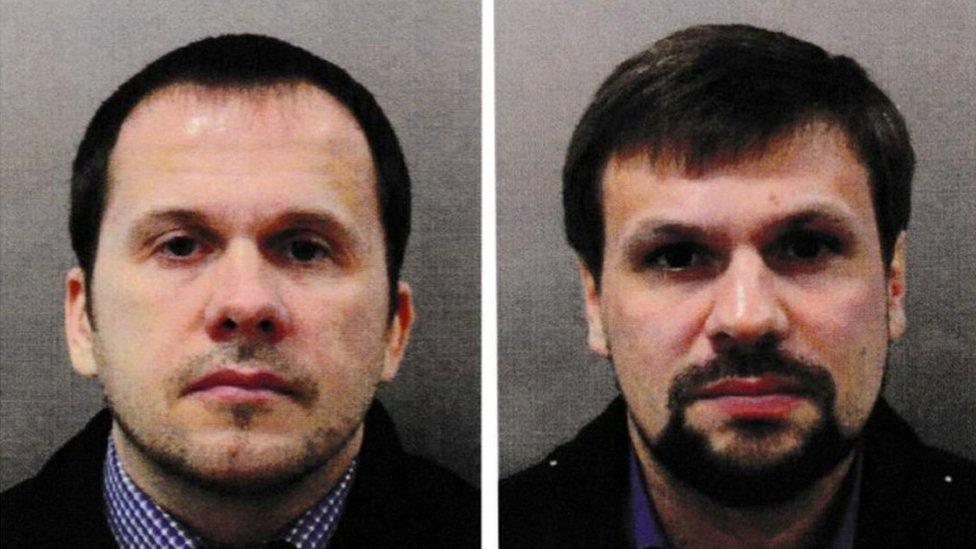
Men calling themselves Alexander Petrov (left) and Ruslan Boshirov have been accused of carrying out the Salisbury poisonings
A public inquiry would consider the cause of Ms Sturgess' death, its links to the attempt on the Skripals' lives, and steps taken to protect public safety in the wake of the attack.
In a letter to Ms Patel, Lady Hallett said if the case was only considered by an inquest, most of the secret evidence would have to be "excluded by operation of Public Interest Immunity" and it would not be possible to summarise "important and relevant detail".
By contrast, laws governing public inquiries allow them to hold closed hearings to consider material gathered by the police and intelligence services.
If the process were to remain an inquest, Lady Hallett said it would be "impossible" for her to conduct a full and fair investigation into Ms Sturgess' death.
'Further distress'
In the letter, sent to Ms Patel in July, she requested the Home Secretary give her provisional views so that those involved in the possible inquiry could give submissions allowing Lady Hallett to make a formal request.
However, in response Ms Patel said that "with regret", she could not do so.
"As I hope you will understand, it would be inappropriate for me to consider whether or not to establish a public inquiry ahead of any request from you to do so," she said.
"I can assure you, though, that I will consider any such request you choose to make with urgency and care."
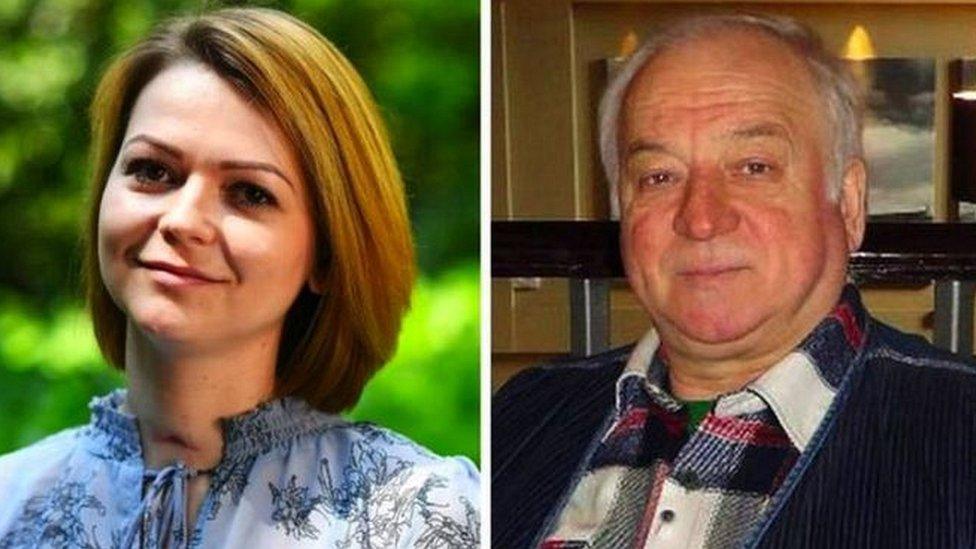
Sergei Skripal and his daughter Yulia survived the poisoning attempt
Mr O'Connor told the hearing that it appeared the Home Office had decided it was "too burdensome" to read documents which the coroner had read in a "few hours".
He also said it was "inaccurate as a matter of law" for Ms Patel to say that she was unable to meet the coroner's request, and inconsistent with the approach she had taken with a previous major public inquiry, into the Manchester Arena bombing.
Andrew Straw QC representing Ms Sturgess' family said a further delay would cause further distress to them.
- Published21 September 2021
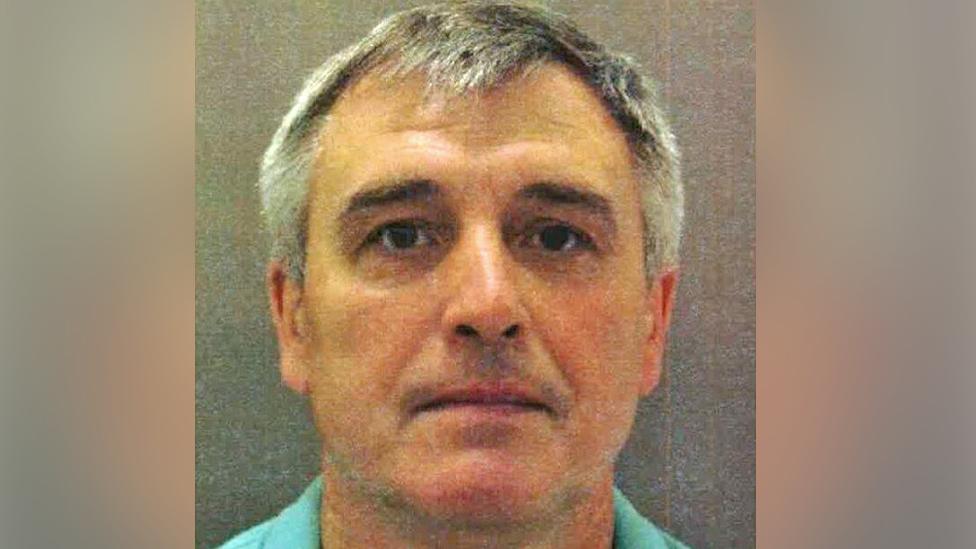
- Published19 April 2021

- Published26 October 2020
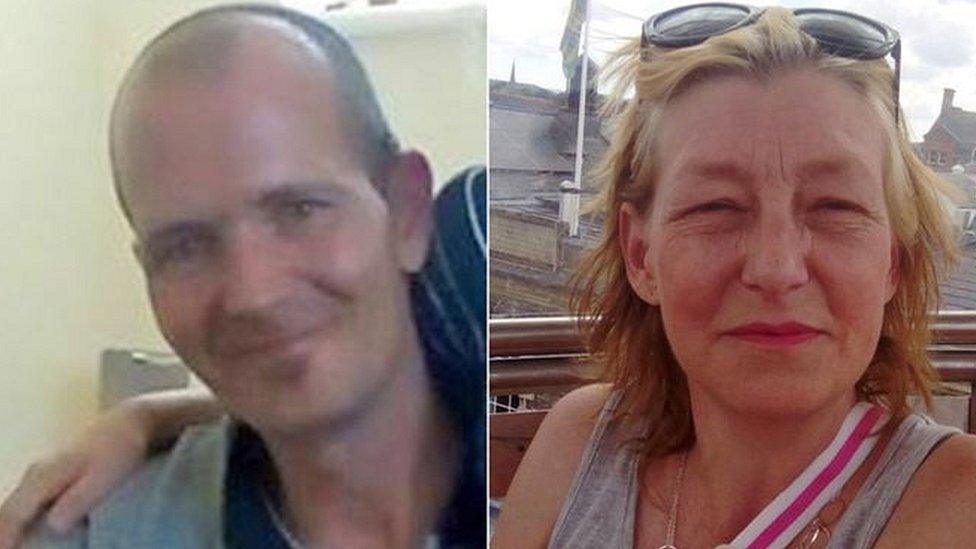
- Published4 September 2020
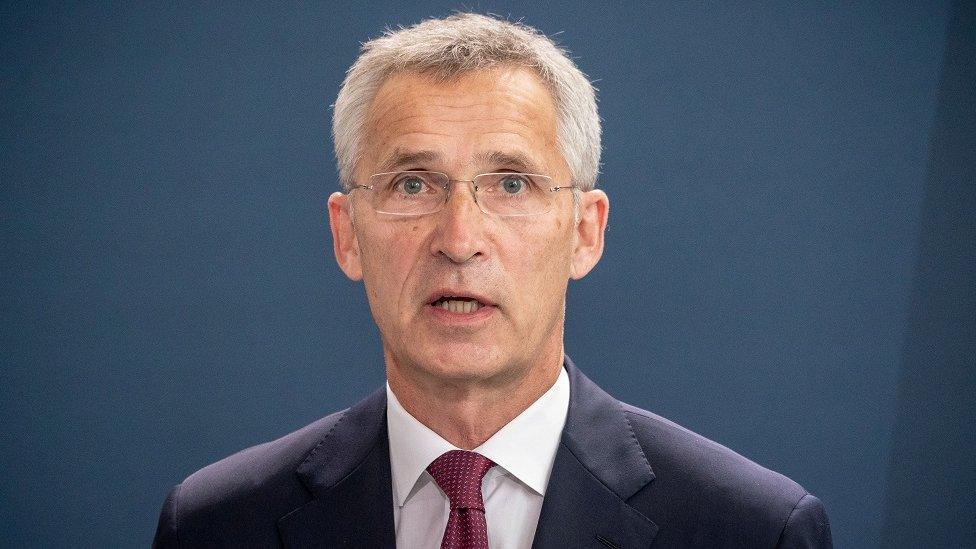
- Published24 July 2020
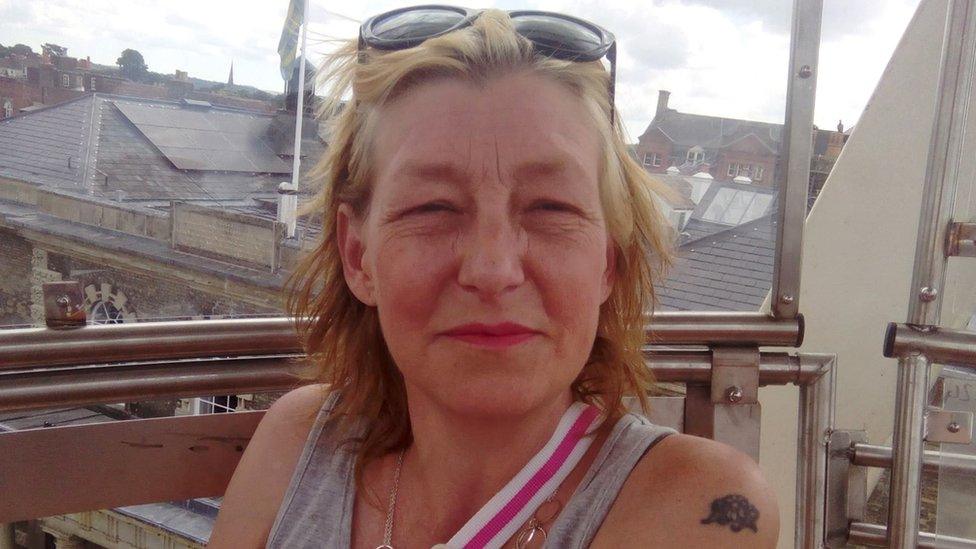
- Published14 July 2020
